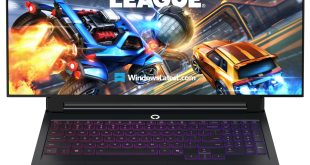After having the market to itself for over 3 years, AMD finally woke up and realised that there was a market for a Fusion-class processor that combined decent CPU-ing with decent GPU-ing. News into KitGuru suggests that Intel might be embarking on a strange strategy for 2011. Here's what we heard.
Matching the awkwardly named E-350 against an Atom processor is just not fair. KitGuru's testing shows that even with a 2 thread and 200MHz advantage, the Atom loses overall.
There is a good chance that when the next generation of completely integrated processors fight it out, Intel will have a battery life advantage – but the usefulness of this has been significantly eroded with the advent of Fusion. Roll the clock back and Intel were supporting EeePC-type products which had an all-day battery life, while AMD models were hitting around the 3 hour mark. Not so with Fusion. KitGuru's review of the HP DM1Z showed clearly that AMD Fusion-powered mobile products can now bat around the 8 hour mark. Sure, having a portable solution with a multi-day battery is a cool tick-box, but in terms of practical usage, it's just not important. We all sleep. We all have access to power. Plugging your laptop in to charge while you sleep – and then having it give you 8 hours of use the next day – is as much as most people want or need. Extending that by 1-2 days won't change the usage model in the majority of cases.

The Atom's loss against Fusion in the performance stakes is measurable, but that was against the initial AMD Brazos product.
With Llano likely to make an appearance at this year's Computex (but remember where you saw it first folks), the Atom will slip further and further behind. Whenever a company gets a perceived lead against Intel, you can believe that the >$42Bn turnover chip giant will unleash its army of scientists, fellows and marketeers – putting the world to right.
Not so on this occasion. From what the company told delegates at ISS in Barcelona this week, it seems that Intel's roadmap for Atom is fixed and no improvements are expected before the end of the year. If there are inventory hang-over issues (for example, due to a quiet summer/back to school market), then the next-generation mass production for Atom might be Q1 2012.
If Llano steps out at Computex and then hits a mass production run for Q3, it would have at least 3 full months in the market, without Intel lining up a direct competitor. Possibly 6 months.
For anyone who's read this thinking “But didn't Intel just announce a brand new Atom processor ?”, we'd like to explain that Intel likes to call it the Intel® Atom™ processor Z670 and it only has half the core processing power of the Atom D525. It's also got only half the cache memory and it works on a 32-bit rather than 64-but instruction set. Full, side-by-side comparison from Intel itself is available here.
The 670 is Intel's latest attempt (alongside Microsoft) to try and win some of that nice tablet business that's being led by ARM, the mighty oak tree that genuinely grew from an Acorn.
KitGuru says: Has Intel made a strategic slip-up or will the chip giant wait until the A-range of AMD Llano products have been fully deployed before unveiling something very attractive within its own range of Fusion-class processors?
Comments below or in the KitGuru forum
 KitGuru KitGuru.net – Tech News | Hardware News | Hardware Reviews | IOS | Mobile | Gaming | Graphics Cards
KitGuru KitGuru.net – Tech News | Hardware News | Hardware Reviews | IOS | Mobile | Gaming | Graphics Cards



interesting, but I disagree on battery life. the longer the better. I want a week long battery life. Why? because if im away for a week, or on business I dont need to worry about charing, carting around a power supply or loads of other things.
Battery life needs sorted.
I reckon Intel are waiting. There are a few advantages to it. They’ll loose market share but then they could come back after the smoke has cleared and release something really awesome.
Depends if they have an ace lined up to use. If they don’t… well. Balls.
What does the Atom have to do with Llano? Llano will be a competitor to low end Sandy Bridge such as the i3 and Pentium G’s. There it’s up to AMD to prove it can compete. The low end Llano chips will likely have graphics slower than Intel’s HD 3000, but faster than HD 2000. Intel has planned for that with the i3-2105, which integrates HD 3000 instead of HD 2000. So AMD’s pricing is what will seal the deal.
The higher end Llano doesn’t have a direct Intel competitor, and in that respect Intel will be late, but this still has nothing to do with the Atom.
INTEL’s “MARKETING” INCLUDES BRIBING AND THREATENING COMPUTER MANUFACTURERS AND RETAILERS TO STAY AWAY FROM AMD PRODUCTS. THAT SORT OF ILLEGAL BEHAVIOR AND MORE HAS BEEN REVEALED IN RECENT ANTITRUST LITIGATION. (see the NY AG’s complaint)
Given that Intel can bribe Dell 6-BILLION dollars for exclusivity and BRIBE/THREAT HP to keep AMD’s market share under 5%, I’d say AMD has ZERO ZERO ZERO ZERO CHANCE of gaining share against Intel.
Llano is a big NO GO. INtel wins.